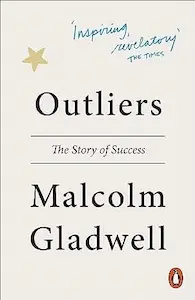Outliers - Summary
Malcolm Gladwell

Introduction
Outliers by Malcolm Gladwell is a book that explores the factors that contribute to high levels of success. The book argues that success is not solely based on individual talent and hard work, but rather on a combination of factors such as cultural background, family history, and opportunities. Gladwell uses numerous examples and anecdotes to support his thesis, and in this essay, I will provide a summary of the book, highlighting some of its key points.
The 10,000 Hour Rule
One of the most famous concepts introduced in Outliers is the 10,000 Hour Rule. Gladwell argues that it takes approximately 10,000 hours of deliberate practice to become an expert in any field. He uses examples such as The Beatles, who spent countless hours playing in clubs in Hamburg before achieving success, and Bill Gates, who had access to a computer at a young age and spent thousands of hours programming before starting Microsoft.
Cultural Legacy
Gladwell also explores the idea of cultural legacy and how it can impact success. He uses the example of Korean Air, which had a high rate of plane crashes in the 1980s and 1990s. Gladwell argues that this was due to the hierarchical culture of Korea, where co-pilots were afraid to speak up to their superiors. Once Korean Air changed its culture to encourage communication and teamwork, the number of crashes decreased significantly.
The Matthew Effect
Another concept introduced in Outliers is the Matthew Effect, which states that those who have more will be given more, while those who have less will be given less. Gladwell uses the example of Canadian hockey players, who are more likely to be born in the first few months of the year. This is because the cutoff date for age groups in youth hockey is January 1st, so those born earlier in the year have a slight advantage in terms of size and maturity. This advantage leads to more opportunities and better coaching, which ultimately leads to more success.
Opportunity
Gladwell also emphasizes the importance of opportunity in achieving success. He uses the example of the tech industry in Silicon Valley, which was able to thrive due to a combination of factors such as access to capital, a supportive culture, and a network of talented individuals. Gladwell argues that success is not just about individual talent, but also about being in the right place at the right time.
The Importance of Family
Family background is another factor that Gladwell explores in Outliers. He uses the example of the successful lawyer, Joe Flom, who grew up during the Great Depression and faced discrimination as a Jewish person. Flom’s family was able to provide him with opportunities such as a good education, which ultimately led to his success.
The Power of Culture
Gladwell also argues that culture plays a significant role in success. He uses the example of the rice paddies in China, where farmers have developed a unique system of irrigation and planting that requires a high level of cooperation and communication. Gladwell argues that this culture of cooperation has contributed to the success of China as a nation.
The Role of Luck
Finally, Gladwell acknowledges the role of luck in success. He uses the example of the successful lawyer, Chris Langan, who had a high IQ but faced numerous obstacles such as poverty and a difficult family life. Despite his intelligence, Langan was not able to achieve the same level of success as someone like Joe Flom, who had more opportunities and advantages.
Conclusion
In conclusion, Outliers by Malcolm Gladwell is a fascinating exploration of the factors that contribute to success. Gladwell argues that success is not just about individual talent and hard work, but also about cultural background, family history, opportunity, and luck. By using numerous examples and anecdotes, Gladwell makes a compelling case for his thesis, and this book is a must-read for anyone interested in achieving success.